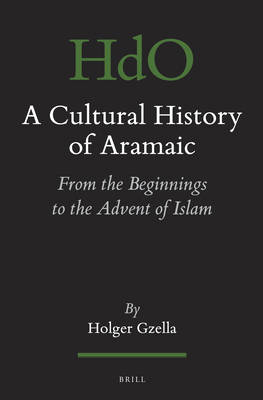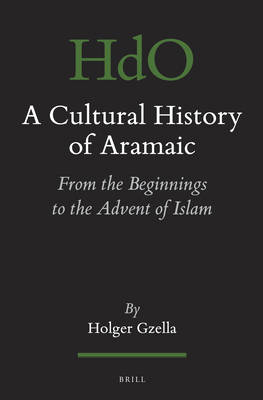
- Afhalen na 1 uur in een winkel met voorraad
- Gratis thuislevering in België vanaf € 30
- Ruim aanbod met 7 miljoen producten
- Afhalen na 1 uur in een winkel met voorraad
- Gratis thuislevering in België vanaf € 30
- Ruim aanbod met 7 miljoen producten
Zoeken
€ 343,45
+ 686 punten
Omschrijving
Aramaic is a constant thread running through the various civilizations of the Near East, ancient and modern, from 1000 BCE to the present, and has been the language of small principalities, world empires, and a fair share of the Jewish-Christian tradition. Holger Gzella describes its cultural and linguistic history as a continuous evolution from its beginnings to the advent of Islam. For the first time the individual phases of the language, their socio-historical underpinnings, and the textual sources are discussed comprehensively in light of the latest linguistic and historical research and with ample attention to scribal traditions, multilingualism, and language as a marker of cultural self-awareness. Many new observations on Aramaic are thereby integrated into a coherent historical framework.
Specificaties
Betrokkenen
- Auteur(s):
- Uitgeverij:
Inhoud
- Aantal bladzijden:
- 468
- Taal:
- Engels
- Reeks:
- Reeksnummer:
- nr. 111
Eigenschappen
- Productcode (EAN):
- 9789004285095
- Verschijningsdatum:
- 8/01/2015
- Uitvoering:
- Hardcover
- Formaat:
- Genaaid
- Afmetingen:
- 157 mm x 236 mm
- Gewicht:
- 839 g

Alleen bij Standaard Boekhandel
+ 686 punten op je klantenkaart van Standaard Boekhandel
Beoordelingen
We publiceren alleen reviews die voldoen aan de voorwaarden voor reviews. Bekijk onze voorwaarden voor reviews.








